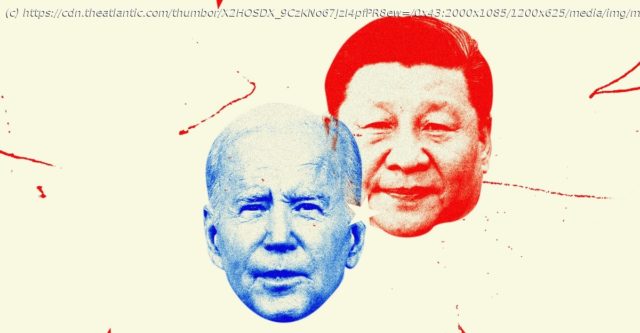The leaders of the U.S. and China are meeting amid high tension, but both have reason to lower the temperature. Here’s how they could.
Summits come and go, usually leaving little trace of their long-term significance. The meeting scheduled this week between U.S. President Joe Biden and Chinese President Xi Jinping on the sidelines of the G20 summit in Bali could be different. The geopolitical stakes are high. Both sides know it. And so does the rest of the world.
China and the United States are locked in a strategic competition over which of them will emerge as the preeminent global power by mid-century. Although the future of Taiwan looms large in this contest, much more is in play than China’s determination to achieve its long-standing objective of national unity. China aims to build a new global order that is based on Chinese rather than American power, and that is more reflective of Chinese national interests and values. Needless to say, the United States has no intention of giving up its position.
The central question at the summit is whether Biden and Xi decide to put a floor under a U.S.- Chinese relationship that has become more and more adversarial. If they don’t, the relationship, the current state of which I refer to as “unmanaged strategic competition,” is likely to become even more destabilized in the future. But if they do decide to stabilize the relationship, the next challenge is how to achieve that—in particular, how to work out what measures are needed to reduce the risk of accidental war for the period ahead.
The domestic prism through which Xi views China’s position is important for Biden to understand. Xi has just emerged politically dominant from the 20th Party Congress. The main advocates of the economic-reform faction of the leadership have been replaced by party officials with a history of personal loyalty to Xi. Xi’s predecessor, Hu Jintao, was unceremoniously escorted from the conference stage after he appeared to have concerns about the final leadership list. Although no trace of the incident appeared in Chinese official media, its rapid unofficial dissemination via social media is politically damaging, in part because it showed a lack of respect for the elderly, still venerated in Chinese society. That aside, Xi emerged from the Congress strengthened rather than weakened. He alone will determine any new approach to the U.S. relationship.
The vulnerability Xi will have to worry about in the years ahead is the economy. China’s rate of economic growth, at about 6 percent over the past decade, was fundamental to social stability because it ensured adequate employment and rising living standards. But major headwinds are now driving growth down. Chinese society is aging rapidly, the birth rate is collapsing, and the workforce is shrinking. Xi has pushed economic policy to the ideological left, with greater emphasis on the party, state enterprises, industrial policy, national self-sufficiency, and redistribution, and less emphasis on the market, the private sector, and international economic integration. As a result, business confidence in China is faltering.
Xi’s determination to enforce zero-COVID lockdowns seems set to continue into 2023 (although the less stringent Hong Kong model may be trialed in some of China’s southern cities). On top of this, the acceleration of technological decoupling from the U.S. and growing foreign-investor skepticism toward China, together with the global macroeconomic effects of both the Russian invasion of Ukraine and monetary-policy action by major nations in response to inflation, are combining to bear down on China’s future earnings from exports and investment.
Whether or not Xi’s advisers give him all the bad economic data, he will arrive in Bali with a reasonable awareness that his economy is weakening. He may therefore be more inclined to seek greater geopolitical stability for the period ahead, to give himself room to solve China’s growth problem.
In his Party Congress report, Xi depicted an international environment that had become more threatening to China. For 40 years, such reports repeated a form of the mantra “Peace and development remain the underlying trends of our times.” Decoded, this meant that Beijing saw no prospect of any conflict that would involve China or distract it from its economic priorities. The 2022 report dropped the formulation and warned instead of “dangerous storms” ahead, and called on the Chinese military to step up combat readiness and prepare for war. Without signaling an imminent military confrontation over Taiwan, Xi was putting the country on a more aggressive national-security footing with regard to the United States. But China still needs time to prepare itself adequately, both militarily and economically, before making any attempt at a forcible return of Taiwan to Chinese sovereignty.






